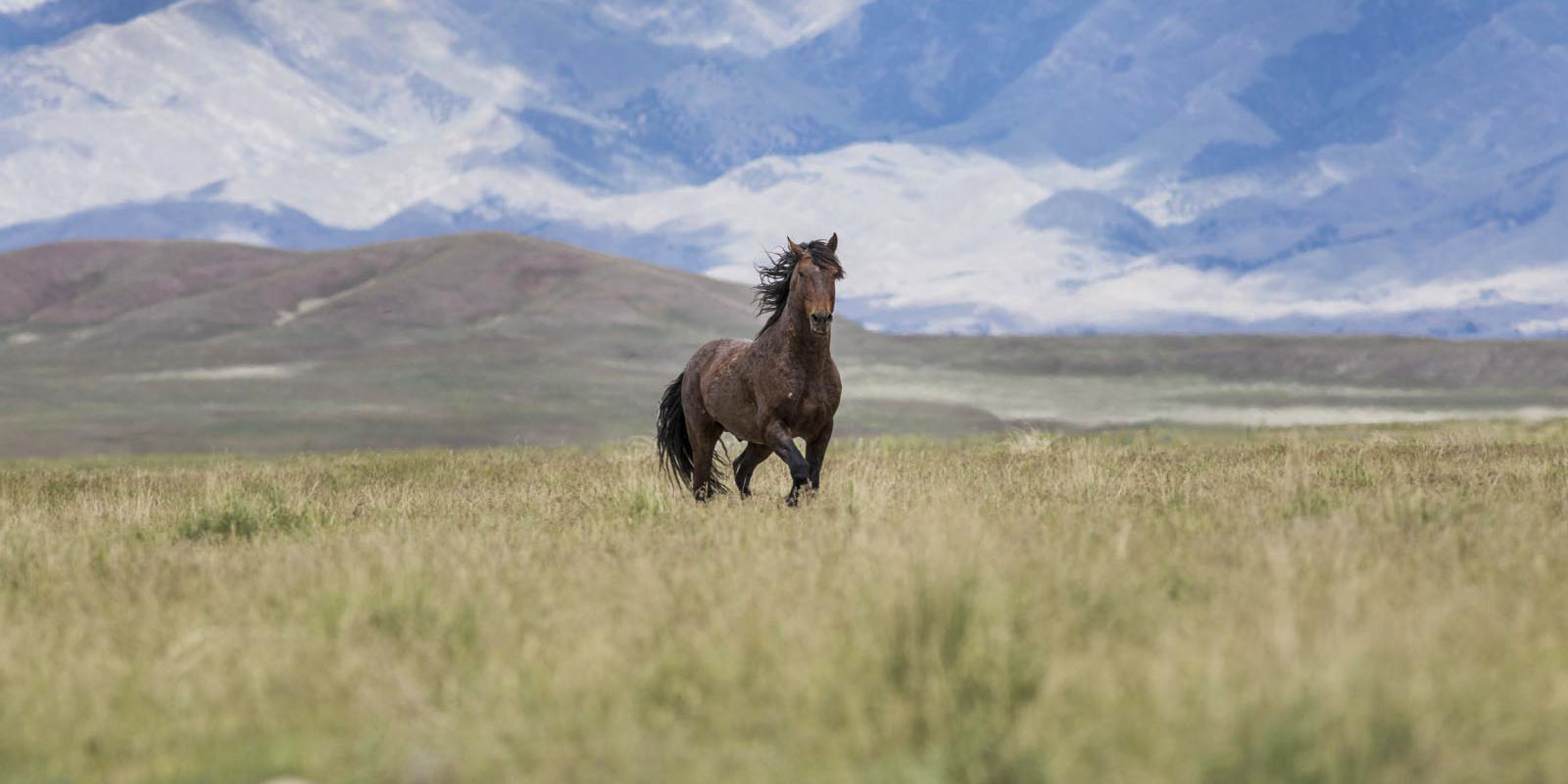Advocates for wild horses and burros are lauding a U.S. Senate spending bill they say would spare thousands of mustangs on public lands from being killed.
An explanatory statement on the Senate Appropriations Committee’s $32.6 billion Interior spending bill for fiscal 2018, released Nov. 20, calls for “humane and politically viable options” to deal with wild horse overpopulation on federal land. A similar bill passed by the House Appropriations Committee in July allows horses to be euthanized as a means of population control.
The House and Senate bills will have to be reconciled in talks between lawmakers from both chambers, and it’s unclear whether long-standing federal prohibitions against the killing or sale for slaughter of wild horses will make the final budget.
Still, wild horse advocates say the Senate bill offers a fighting chance for the animals’ survival.
“The Senate has heard the voice of the Americans loud and clear and rejected the killing of our nation’s iconic wild horses and burros,” Suzanne Roy, executive director of the American Wild Horse Campaign, said in a news release.
“America’s mustangs are part of the history and culture of the West. Clearly, the Senate realizes that killing America’s mustangs or selling them for slaughter is not acceptable to the American public. The only humane and politically viable path forward is to use birth control to manage wild populations on the range, as recommended by the National Academy of Sciences.”
The Senate bill is the latest development in an emotional debate over wild horses and burros roaming millions of acres in the West.
Officials with the federal Bureau of Land Management have said that the current wild horse population, estimated at 73,000, is more than the land can sustain and the population doubles every four years and that not enough horses are being adopted to keep pace with population growth.
The BLM has been rounding up wild horses and burros and holding them indefinitely in off-range facilities. According to the BLM, close to $50 million of the wild horse program’s $80 million budget is spent caring for the 46,000 horses in those facilities and the program’s budget has quadrupled since 2000.
Cattle ranchers whose herds graze on federal land argue the horses compete with livestock for grazing and threaten the ecological balance of public lands. The Trump administration also supported lifting the ban on euthanasia.
Reacting to the Senate bill, Ethan Lane, executive director of the Public Lands Council, which represents ranchers with grazing permits on public lands, said: “The need to responsibly manage these animals grows daily as this population and the ensuing animal welfare crisis continues to explode.”
During a House appropriations hearing this summer, Rep. Chris Stewart, R-Utah, held up a photo of an emaciated horse while arguing it was cruel to let horses on public lands starve to death because there are too many horses and not enough food.
Stewart offered an amendment to the House spending bill for the Department of the Interior that opened the door to euthanasia. The amendment, which passed by voice vote, had the support of Rep. Ken Calvert, R-Corona, who chairs the appropriations panel in charge of interior funding.
“The reality on our federal lands is that the status quo is not working for our wild horses and it’s not working for taxpayers,” Calvert said at the time.
Wild horse advocates condemned the House bill, with Roy calling it “a death warrant for America’s mustangs” that “will lead to the wholesale destruction of these irreplaceable national treasures.”
Rather than kill the horses or sell them to slaughterhouses, advocates called for more funding of research for horse birth control. They also take issue with the idea that horses are starving due to overpopulation.


